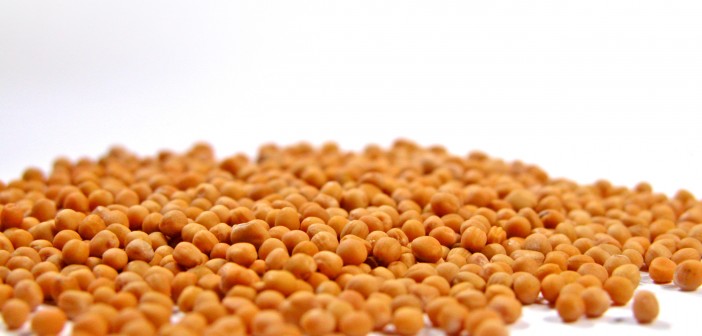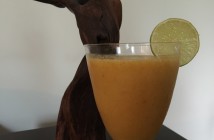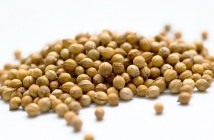What is a Mustard Seed? Mustard is one of the most popular spices, widely used across the world. The name “mustard” has its origin in the Latin term mustum Arden, which is translated as “burning must”. Mustard seeds are known for being particularly spicy, which makes them important ingredients used in the preparation of so many special culinary delights. Mustard seeds are available as black, brown, and yellow (or white) mustard seeds, all of which are derived from the mustard plants, belonging to the cabbage and broccoli family.
Taste and Aroma
Mustard seeds lack an aroma and are flavorless. However, when whole or ground mustard seeds are absorbed in cold water – not hot –, the myrosinase enzyme gets to work and give it a distinct and special condiment flavor. The darker a mustard seed, the hotter the taste. Of the mustard seeds, yellow mustard seeds are the mildest in taste and flavor. Mild mustards are tangy, smooth, savory and pleasant in taste. Black mustard seeds are sharply hot with a nutty aftertaste, while brown mustard seeds have a flavor that somewhat less pungent than black mustard seeds. But generally it is difficult to differentiate between black and brown mustard seeds when it comes to their flavors.
Pairing Spices
Allspice, cardamom, chili, cinnamon, cloves, coriander, cumin, fennel, fenugreek seed, ginger, nigella, paprika, pepper, star anise, tamarind, turmeric
Complements
Pickles, Indian curries, salad dressings, spiced vinegars, curry powders, pickling spices, meat seasonings
Culinary Uses
Mustard seeds leave their distinctive flavor only after being mixed with cold water, wine or juice. However, adding these seeds in hot water would kill their flavor. There are also prepared mustards which have a range of flavors, ranging from hot to mild, sweet to spicy, and may be used with honey, red wine, tarragon or lavender.
Mustard seeds are an integral part of Indian cooking, where they are used in the preparation of vegetable dishes, curries, dhals and pickles. They are usually fried in ghee first, till they pop, which give them a distinct texture and nuttiness and then, they are sprinkled on the various dishes. In the West, mustard is used on deviled eggs, potato salads, grilled meats, corned beef, pork, sausages, and cold cuts and in sauces. In China, dry mustard is used in combination with sesame oil and chile oil to make dipping sauce. Argentina’s famous beef is prepared with mustard seeds as well.
Buying and Storing
Yellow mustard seeds and dry mustard can be bought from most stores, and are sold as whole mustard seed, crushed, or ground. Brown mustard seeds are available from spice specialty or online stores. Black mustard seeds are hard to get, but usually brown mustards are considered suitable substitutes for them. Whole mustard seeds are very stable, and can be stored safely for three years, as long as they are kept in a dry place. When purchasing prepared mustard, avoid those showing signs of separation.
- Whole Yellow Mustard Seed
- Ground Mustard Seed
- Whole Brown Seeds
- Whole Black Mustard Seed
- Dry Mustard Powder
- Oriental Hot Mustard Powder
- Prepared Sweet Hot Mustard
Mustard Seed Health Benefits
Mustard seeds and mustard essental oils have the following health benefits:
- They are believed to clear the voice, which makes them popular with singers.
- Mustard seeds prevent common infection such as cold and cough.
- These seeds are used as a diuretic to increase the urine flow and to relieve water retention.
- Mustard is known to stop vomiting and cure sore mouth and throat.
- They have wide ranging health benefits such as preventing congestion of the chest, provides a cure for swollen joints, rheumatism, back pain or lumbago and osteoarthritis.
- Mustard seeds help in the management of insulin in the prediabetes state, which is such a great help to diabetes patients.
- Mustard seeds are good for the brain as they manage the healthy flow of blood to the brain.
- Mustard reduces the risk of heart disease by lowering the bad LDL cholesterol and increasing the good HDL cholesterol.
- Mustard seeds have a chemical compound called AITC (allylisothiocyanates) which is known to slow down the growth of cancerous cells.
Caution
- Avoid feeding dishes with too much mustard to children under the age of six. Excessive consumption of mustard (supplement) may lead to vomiting, diarrhea and breathing issues. Pregnant women should not consume mustard in medicinal amount as it might start menstrual period and cause a miscarriage. If you have a sensitive skin, application of mustard oil
should be avoided.





